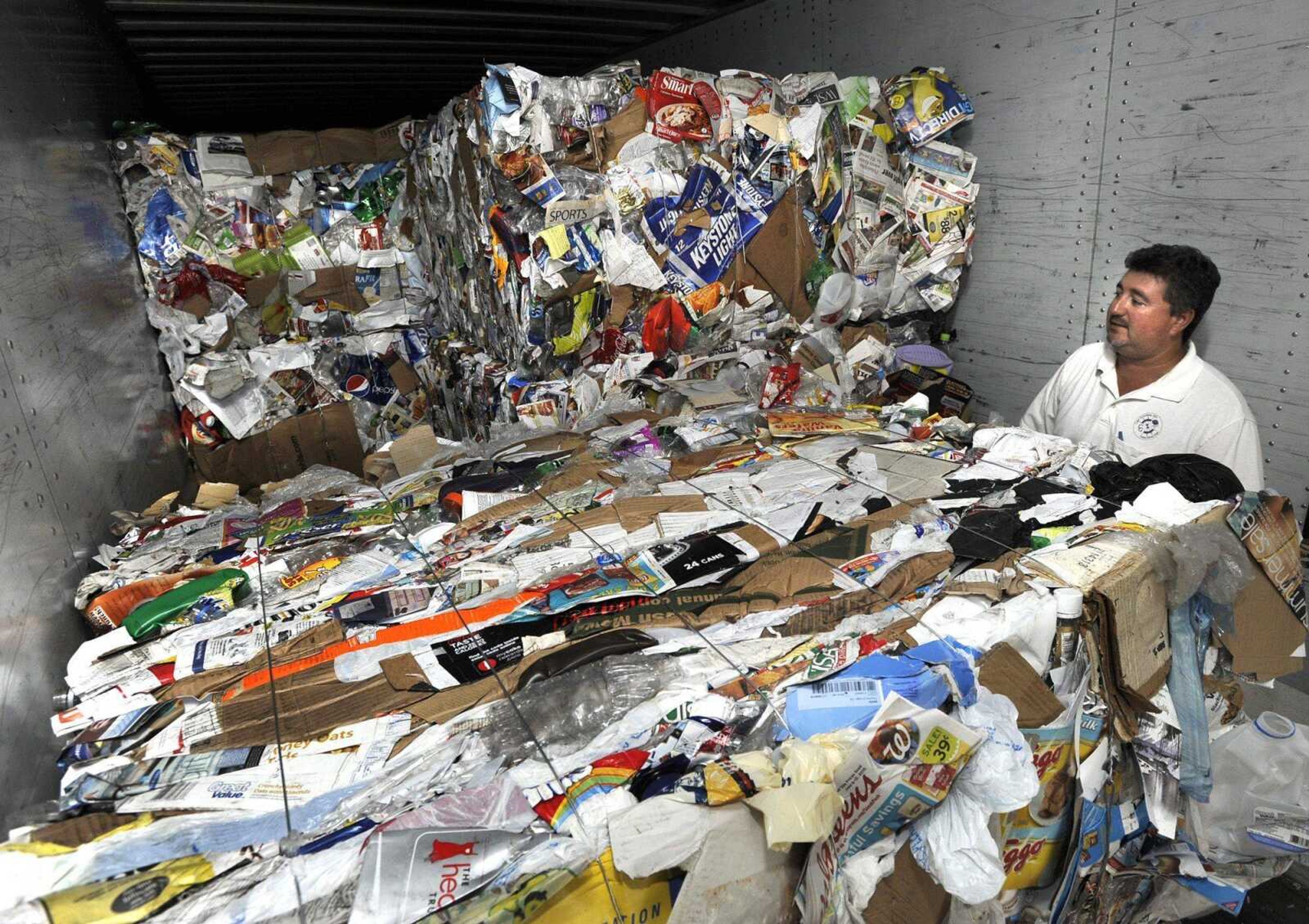Cape's collection of recyclables up 58 tons in May
The Cape Girardeau Public Works Department collected two tons more from trash customers in May than it did the previous month, but not a single ounce of that went into a landfill. Instead, solid waste supervisor Mike Tripp said, the extra material was all recyclable materials. During May, the first month with automated trash collection trucks in use and single-stream recycling, the city increased collections of recyclable materials by 58 tons. Garbage collections fell by 56 tons, Tripp said...
The Cape Girardeau Public Works Department collected two tons more from trash customers in May than it did the previous month, but not a single ounce of that went into a landfill.
Instead, solid waste supervisor Mike Tripp said, the extra material was all recyclable materials. During May, the first month with automated trash collection trucks in use and single-stream recycling, the city increased collections of recyclable materials by 58 tons. Garbage collections fell by 56 tons, Tripp said.
"Overall I am tickled to death," Tripp said. "And as far as the residents are concerned, they really jumped on board and have been huge in the success we have had."
At the beginning of May, the city began using collection trucks with a grappling arm to pick up new molded plastic bins that were delivered to 11,000 households in the weeks leading up to the switch. By using the trucks, which are used for both recycling pickups and garbage collection, the city was able to cut the number of workers assigned to each truck to one instead of the two required previously.
The green recycling bins eliminated the need for residents to separate recyclable materials by type. Instead, paper, plastic, cardboard, tin cans and aluminum can be piled into the bins, with some exceptions such as pizza boxes, which may be contaminated with food. No glass is allowed in the bins.
During May, the city collected 139 tons of recyclables, not including glass, Tripp said.
Collections of glass, which may be dropped off at any city fire station or at the public works building at 2007 Southern Expressway, also increased in May, Tripp said. The city filled three semitrailer loads of glass in May, compared to one in April, he said.
The switch to automated collections will produce significant cost savings in the city budget, mainly from reduced payroll costs and by avoiding the annual equipment replacement costs that meant the city usually bought a new trash truck every year. But the city also saves a small amount from the price per ton it pays to dump garbage at the Timber Ridge Landfill near Park Hills, Mo., and gains a small amount by sending more material to QRS Recycling of St. Louis, Tripp said.
QRS pays the city for the material and the amount is based on whether the average price the company receives for all recyclables is above or below $150 a ton, Tripp said. But QRS was the only company willing to pay for the city's recyclables after the previous hauler stopped taking it because of low salvage prices.
"Last year, basically, to get rid of it, we would be paying," Tripp said.
Overall, recycling increased 54 percent, and Tripp said he hopes to maintain that level. The city collects trash and recyclables four days a week, and he said households with a Thursday recycling pickup have shown the biggest increase. Those households are in the portion of the city east of Perry Avenue and north of Broadway, where recycling is up 115 percent, Tripp said.
"If we can keep this 54 percent up, I will be happy," he said.
Problems of residents using the wrong bins or putting out extra trash have all but stopped, Tripp said. Many people who asked for smaller bins -- standard trash bins are 64 gallons and recycling bins are 96 gallons -- now do not want them, he said. The city is delivering smaller bins now and only about half the people who signed up are actually taking them, Tripp said.
rkeller@semissourian.com
388-3642
Pertinent address:
2007 Southern Expressway, Cape Girardeau, MO
Connect with the Southeast Missourian Newsroom:
For corrections to this story or other insights for the editor, click here. To submit a letter to the editor, click here. To learn about the Southeast Missourian’s AI Policy, click here.










